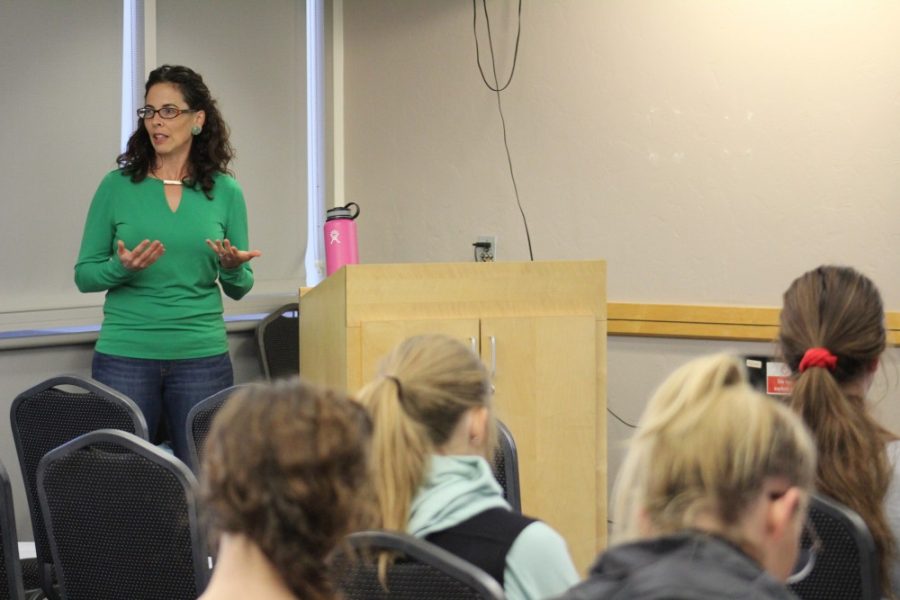Jennifer Ravia, a University of Arizona instructor, gave a presentation on vegan and vegetarian diets in the health services building on Thursday, February 15.
Wearing a white blazer covered in brightly colored green and yellow pears, Ravia explained how keeping a meatless diet can be beneficial, as long as you keep your diet balanced and healthy. According to Ravia, many people are quick to question if vegetarians get enough protein to keep a healthy lifestyle.
“It can be healthy,” Ravia says, “ But just like any diet, you have to make good choices for it to be.”
RELATED: UA department of East Asian Studies expands with new Korean minor
During Ravia’s presentation, she had charts showing the amount of protein in different types of seeds, nuts, meats, and dairy products. While meat products had high amounts of protein, other vegetarian products such as cottage cheese had more.
Ravia touched on how people in America eat more protein than necessary, and the meat is the main part of the meal. In other areas, such as mediterranean, if people eat meat, the meat is not the center of the meal.
Building a full meal, and not just having a focal point can make for a diet with a better proportion and types of the foods we need, according to Ravia.
Ravia said, “I enjoy it (being vegetarian) because it really forced us to have a lot more variety in our diet.”
For vegetarians, vegans, or meat eaters, Ravia suggests trying bowls, a new food trend that consists of the correct proportions of the types of food we need. Bowls usually consist of grains, vegetables, and/or protein.
On campus, restaurants such as IQ, Fuel, and Core all sell vegetarian bowls.
Ravia says that vegetarian community at the UA is “gaining momentum but I’m not sure that we’re there yet.”
One way to get involved in the vegetarian and vegan community on campus is by joining one of the several clubs designed for vegans and vegetarians. One of those being the Veggie Cats.
RELATED: Not Your Regular Tuesday Night
“Veggie Cats is a club that aims to build community on campus for students (and faculty) living a vegan/vegetarian lifestyle,” said Mike Price, president of the Veggie Cats.
The club has weekly meetings, works on projects together, has potlucks, and does other activities that are appealing to the club members, according to Price.
The club holds its meeting every Tuesday night at 6:30 in the Agave room of the student union.
The goals of the club are to, “provide more resources and knowledge about veganism in all respects – nutritionally, ethically, and environmentally,” said Price.
For students who want information or to meet others who are vegan or vegetarian, joining clubs is a good way to raise awareness.
“Our club is important to the UA campus because it provides a platform for students that are passionate about and supportive of, a plant-based diet,” according to Price.
The club also aims to give a voice to vegetarian and vegan students who want to make an impact on campus, like adding more options to the student unions or bringing more vendors to campus.
There are other clubs on campus that promote different types of nutrition components, like animals, sustainability, and food, which are part of the clubs, Wildcats CARE, Students for Sustainability, and Compost cats.
Nutrition classes are also offered for general education credit, including Nutrition, Food and You; Diet, Genes and Disease; and Experiential Learning in Nutritional Sciences, according to the University of Arizona website.
The talk aims to be a series put on by nutrition clubs on campus.
Follow Daily Wildcat on Twitter









